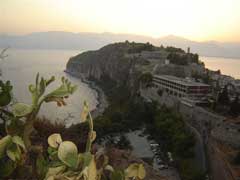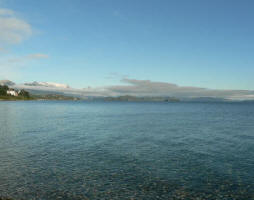 INWRDAM survey questionnaire on use of MBR in MENA region
INWRDAM survey questionnaire on use of MBR in MENA region
Identification of Potential Areas for Implementation of the Membrane Bioreactors (MBR) Domestic Wastewater treatment plants in peri-urban and rural areas in Middle East and North Africa (MENA) Countries:
The purpose of this questionnaire is to check the potential of considering Membrane Bioreactor (MBR) wastewater treatment plant as a valid option for treating the domestic wastewater in the rural areas in selected MENA region countries.
The MBR applications for sewage treatment witnessed rapid development from the early 1990's. At present two types of MBR processes for sewage treatment are available, both feature out-to-in permeate filtration and comprise either flat sheet or hollow fiber membrane modules.
MBR is a combination of activated sludge treatment together with filtration by micro-or ultra filtration membranes and produces high quality of microbial and suspended matter free effluents. The later step replaces the final clarifiers used in the conventional activated sludge treatment. The physical barrier imposed by the membrane system provides complete disinfection of the treated effluent without need for use of chlorination or other disinfection methods. It also enables attainment of high sludge concentrations in the reactor, and therefore permits to reduce the required over all plant size and footprint and/or sludge production.
Recent experimental and practical implementation of the MBR technology showed that the rate of BOD and COD removal is more efficient in this technology than the other treatment technologies. In addition to the benefit of scaling down the necessary space for the treatment plant and the number of plant components. Current operated MBR treatment plant showed that the effluent BOD5 could reach 5 mg/l while the percentage of COD removal could reach around 97%. Removal of bacteriological species without use of disinfection is an important added advantage of MBR.
The initial cost of the plant is less than the traditional plants that can produce the same quality of effluents, for the operation and maintenance costs they are relatively less than the traditional treatment plants except for the spare parts.
The study of financial and economical feasibility of the adaptation of the MBR treatment plants at rural areas in the MENA countries showed that such a plant will be feasible and financially validated.
This is a questionnaire requesting you to and kindly complete it - or fill it out to the extent you are able to, and email back to inwrdam@nic.net.jo
| Contact information |
Dr. Murad Bino, Executive Director: 70 Ahmad Tarouneh Street, German- Jordanian University Building, P. O. Box 1460, Jubeiha PC11941, Jordan
(email: muradinw@nic.net.jo ; inwrdam@nic.net.jo ) Phone: +962 (0)6- 533 2993 ; Fax: +962 (0)6-533 2969 ; Cell: +962(0)79-5545311 |
|---|---|
| News type | Inbrief |
| File link |
http://www.greywater.inwrdam.org |
| File link local |
|
| Source of information | The Inter-Islamic Network on Water Resources development and Management (INWRDAM); P. O. Box 1460, Jubeiha 11941, Amman, Jordan |
| Keyword(s) | MBR |
| Subject(s) | ANALYSIS AND TESTS , CHARACTERISTICAL PARAMETERS OF WATERS AND SLUDGES , DRINKING WATER , DRINKING WATER AND SANITATION : COMMON PROCESSES OF PURIFICATION AND TREATMENT , ENERGY , HEALTH - HYGIENE - PATHOGENIC MICROORGANISM , INDUSTRY , INFRASTRUCTURES , MEASUREMENTS AND INSTRUMENTATION , METHTODOLOGY - STATISTICS - DECISION AID , PREVENTION AND NUISANCES POLLUTION , SANITATION -STRICT PURIFICATION PROCESSES , SLUDGES , WATER QUALITY |
| Geographical coverage | Jordan, Euromed |
| News date | 12/01/2009 |
| Working language(s) | ENGLISH |
 you are not logged in
you are not logged in





